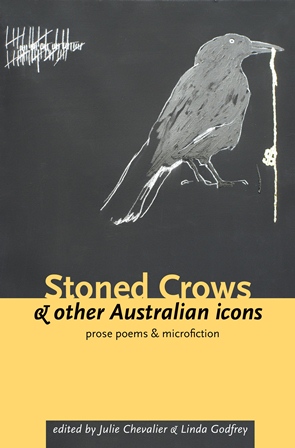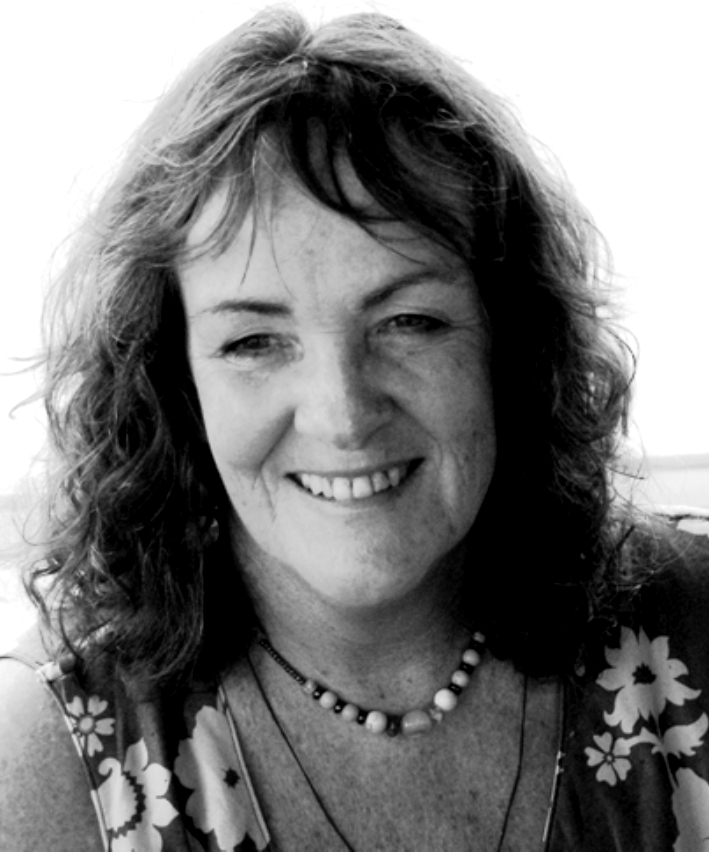1. What inspired you to write the prose poem/microfiction which is published in Stoned Crows & other Australian icons?
I did a Masters of Creative Arts at UTS in 2010/11 and my focus was the great traveler and modernist artist Ian Fairweather (1891-1974). I planned to base a volume of poems on aspects of his life, particularly his shambolic raft journey from Darwin to Timor in 1952, and needed to find out more about this particularly enigmatic loner. (Fairweather’s Raft was published by Walleah Press in 2102).
Margaret Olley was a friend of Fairweather’s in his later years when, after surviving the raft journey and other misadventures , he returned to Australia and squatted in a thatched hut on Bribie Island, off Queensland. Olley was living in Brisbane, admired his work, and despite his reticence befriended him. She’d send him a letter: ‘Dear Mr Fairweather, may I come to visit?’, wait for a reply: ‘Yes Miss Olley’, then she’d pack a picnic. Once she arrived at Fairweather’s camp he would direct her to do things like drive him to a distant beach to bring back a stash of driftwood to add to his ramshackle hut, or hire a boat and row him to look at White Patch, where he’d first camped when he drifted to Bribie in a boat in 1945.
Margaret Olley granted me a half hour interview. It was International Women’s Day, 2010, a nice synchronicity as she was a great feminist. She was imperious and immediately engaging: Put away your questions, I’m not going to answer them. I’ll just tell you what I remember’.
The next two hours were gold, and I left with many insights into both artists. Olley’s voice—funny, irascible—was distinctive. Her words, the way she said them, stayed in my mind. The prose poem ‘Margaret Olley sits for Ben Quilty’, fuses how she was on that day and my response to Quilty’s fabulous portrait of Olley, which won the Archibald Prize in 2011, the year she died. I can worry at a poem for months, even years, but this was written quickly because her voice was so strong.
2. Tell us about your process. (Do you start sparse and widen out, or do you write down every possible association and cut back? Do you research the subject matter you are writing about? Is it pure intuition?) Take us through an example if you want.
There is no single process. The idea often comes with a single word, phrase or observation which I’ll free-write on, building more phrases and ideas. Sometimes, reading other writers, a word or expression will chime and I’ll start to riff my own thoughts from it. I like being challenged by writing exercises – the more random the better like using Michael Farrell’s method of rolling a die to change word choices. Because I live in locations remote from a writing network, I’m extraordinarily lucky have been part of a supportive online writing group for many years. That group, which meets online monthly, and face to face a few times a year, is characterized by throwing-down-the-gauntlet workshopping and no-holds-barred, but supportive, feedback.
3. What advice do you have for other writers ? about the first or last line? About how to choose the title? Do you follow any rules?
Serendipity rules.
4. Who or what inspires your writing?
Other writing, art and images, place, different cultures and the way people live in them, chance sightings and remarks.
5. Tell us what you do if you haven’t written anything in a while and you want to get started writing again? Could you share your favourite writing exercise with our readers?
If I need to get back to writing I read other writers, particularly poets. Reading someone else takes you out of your own mindset, or mindlessness.
A good exercise, if you need something to kick you off, is to find two disparate pieces of writing—online, a magazine, a trade journal or catalogue. Something beyond your interest or comfort zone is good. As you read through underline any word or phrase that you respond to. Write out the results, mash them together, have a damn good play, then start adding and crossing out.
Dael Allison is a writer and editor. Winner of the inaugural Varuna LitLink/NRWC Award for an Unpublished Novel (2009) she also won the Northern Territory Literary Award for Essay (2008) and the 2005 Wildcare International Essay Prize, a competition which she has since co-judged three times with poet Adrienne Eberhard.
Dael has been awarded several poetry prizes, including the 2012 Henry Kendall Poetry Award. As recipient of the Varuna/Picaro Press Chapbook Award in 2010, her first chapbook, Shock Aftershock, was published by Picaro Press. Picaro published her second chapbook this year: Wabi Sabi is number 128 in their Wagtail series.
Dael’s master of Creative Arts (UTS, 2012) focused on the artist Ian Fairweather. In 2010, in association with the Northern Territory Writers’ Centre and its members, she edited and published the Fairweather tribute chapbook Adrift. Her volume of poetry, Fairweather’s Raft, was published in 2012 by Walleah Press:
http://store.walleahpress.com.au/dael-allisons-fairweathers-raft/
Editor of three anthologies for Poetry At The Pub, Newcastle, in 2012 she co-edited, with Michael Sharkey, the final issue, of Famous Reporter.
Based near Taree, NSW, Dael has worked on Aid projects in Indonesia, and in Kiribati, Central Pacific, where she currently lives.

